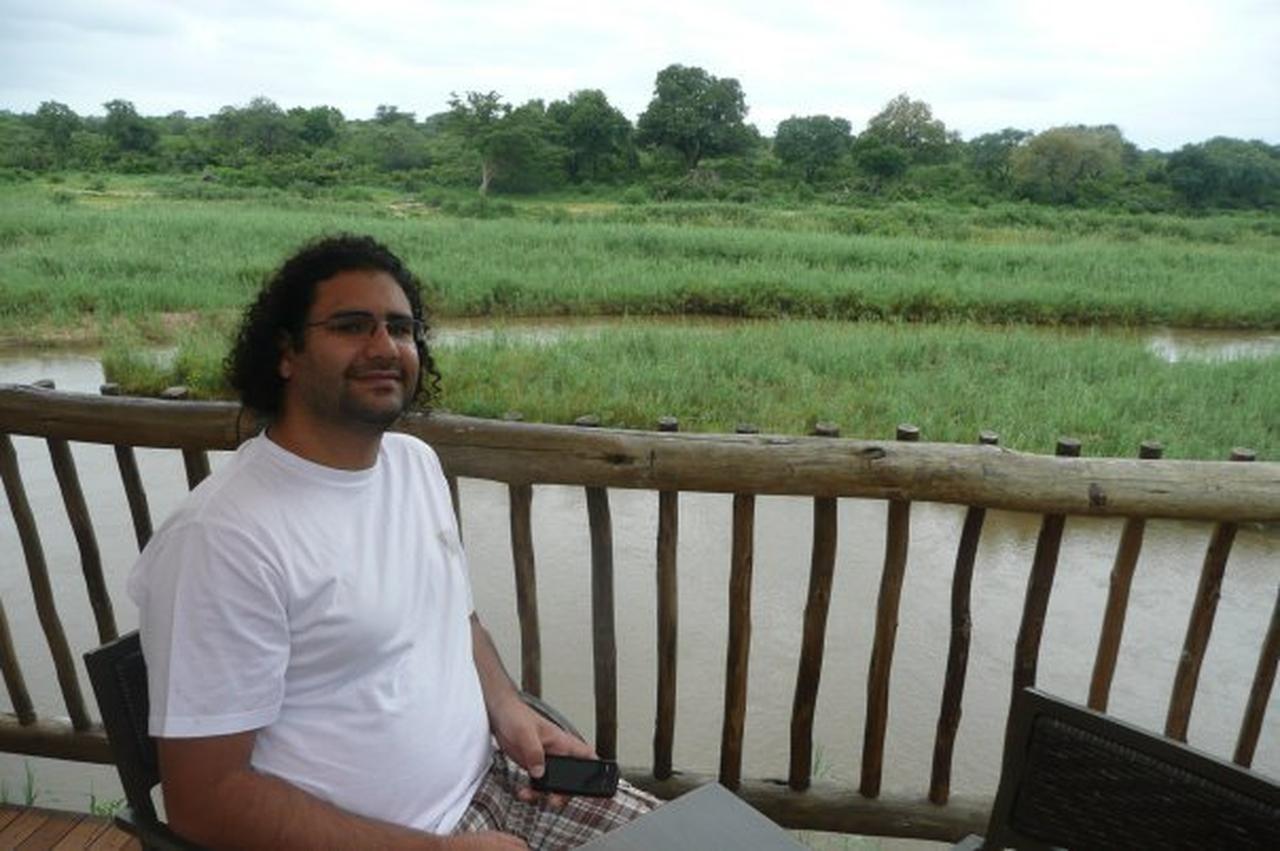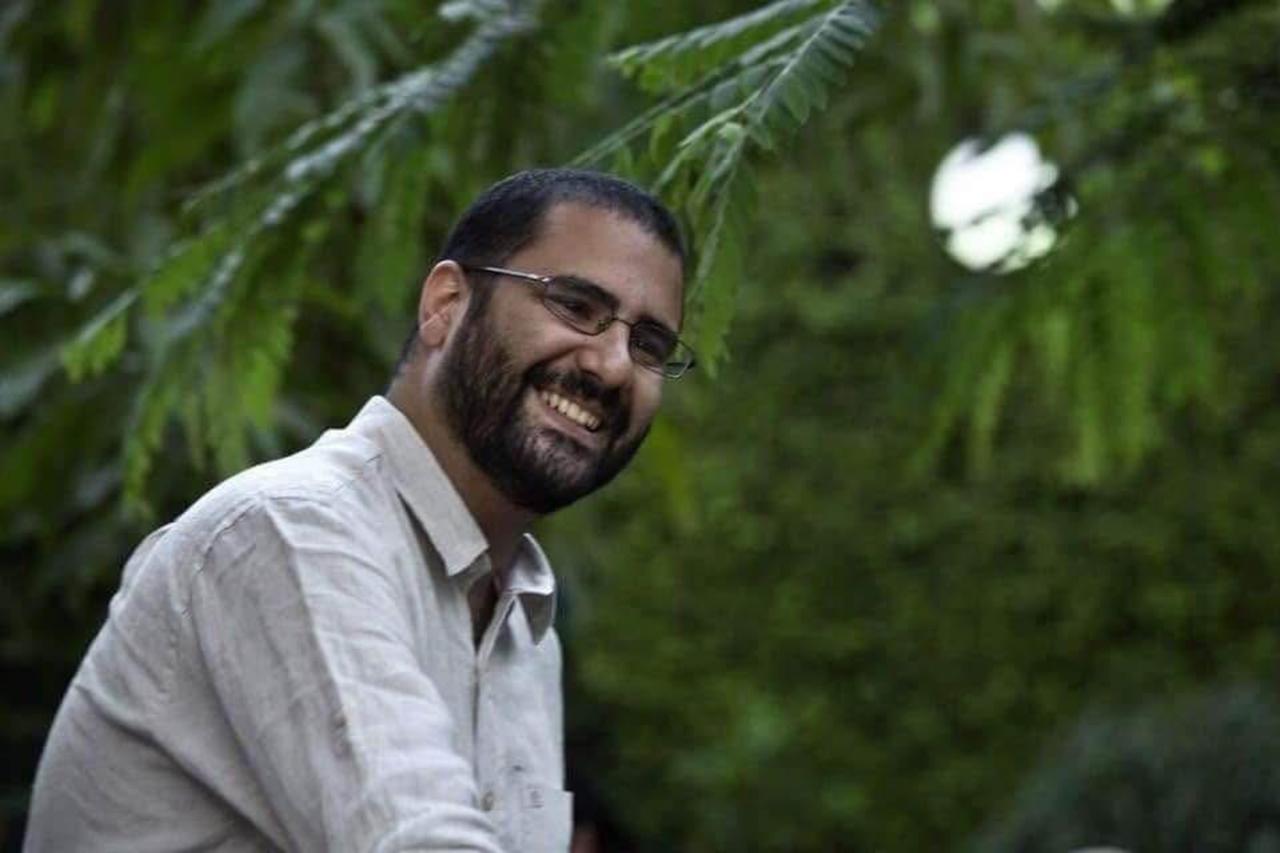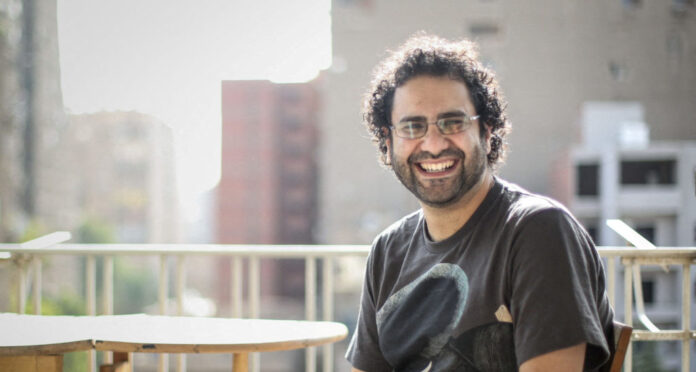Egyptian President Abdel Fattah al-Sisi has granted a presidential pardon to well-known British-Egyptian activist and blogger Alaa Abdel Fattah, bringing an end to a six-year imprisonment that drew global attention and international criticism. The announcement was confirmed by Egyptian state media as well as the activist’s family.
High-Profile Release After Years in Detention

According to Al-Qahera News, Abdel Fattah was one of six individuals granted pardons following appeals from Egypt’s National Council for Human Rights (NCHR). The 43-year-old activist, who became a central figure during the 2011 Egyptian uprising, had been serving a sentence for allegedly “spreading false news.”
His sister, Mona Seif, expressed her relief on social media, writing: “My heart will explode.” Another sibling, Sanaa Seif, also confirmed the news, saying she and their mother were on their way to the prison to find out details of his release.
Background of Alaa Abdel Fattah’s Case
Alaa Abdel Fattah was first arrested in 2019, just months after completing an earlier five-year prison term. In 2021, he was convicted of sharing a Facebook post that referenced the death of a detainee following torture.
Human rights groups, including Amnesty International, consistently labeled him as one of Egypt’s most prominent political prisoners. While his official sentence was due to end in September 2024, authorities did not count nearly two years he had spent in pre-trial detention, pushing his expected release date to January 2027.
Although he obtained British citizenship in 2021, Egyptian authorities consistently denied him consular access from the UK government, fueling diplomatic tensions.
Confirmation from Legal Team

His lawyer, Khaled Ali, confirmed on Facebook that Abdel Fattah had been officially pardoned. He added that the activist would be released from Wadi al-Natrun prison, located northwest of Cairo, once the presidential decree was published in Egypt’s official gazette.
Human Rights Council Welcomes the Decision
The National Council for Human Rights praised the move, describing it as “a step that underscores a growing commitment to reinforcing the principles of swift justice and safeguarding fundamental rights and freedoms.”
Just two weeks earlier, President Sisi had instructed authorities to review the NCHR’s petitions for Abdel Fattah and several other detainees. The council submitted its requests citing the humanitarian and health concerns affecting the prisoners’ families.
Family’s Long Struggle
The activist’s mother, Leila Soueif, who holds British citizenship, had been one of the most vocal advocates for his freedom. In July, she ended a nine-month hunger strike after assurances from the UK government that it was pursuing every diplomatic avenue to secure her son’s release.
During her protest, Soueif lost more than 40% of her body weight and was hospitalized twice in London. Abdel Fattah himself has also staged several hunger strikes while in detention, including one in 2022 during Egypt’s hosting of the (COP27), which intensified international pressure on Cairo.
A Symbol of Egypt’s Uprising
Alaa Abdel Fattah first gained prominence as a leading voice during Egypt’s 2011 revolution, which led to the resignation of long-time President Hosni Mubarak. His activism and outspoken defense of democratic freedoms made him a symbolic figure in Egypt’s pro-democracy movement.
However, since President Sisi assumed power in 2014 following the military removal of Mubarak’s successor, Mohamed Morsi, Abdel Fattah has spent the majority of his time behind bars or under police surveillance.
UN Findings on Arbitrary Detention
In May, the United Nations Working Group on Arbitrary Detention declared that Abdel Fattah’s imprisonment was politically motivated and violated international law. The panel criticized Egypt for denying him a fair trial and concluded that his detention was linked solely to his peaceful expression of political views.
Egypt’s government rejected the findings, maintaining that Abdel Fattah received all due process rights and that his sentence would normally conclude in 2027.
Looking Ahead
The pardon of Alaa Abdel Fattah comes amid increased scrutiny of Egypt’s human rights record, especially in the run-up to major international engagements. Analysts believe the decision may be aimed at easing international criticism and signaling a willingness to address humanitarian concerns.
For Abdel Fattah’s family, however, the focus is on a long-awaited reunion. His sister Sanaa wrote emotionally: “I can’t believe we get our lives back!”
With his release now imminent, it remains to be seen whether Abdel Fattah will continue his activism or choose a quieter life after more than a decade marked by repeated arrests and political struggles.
Sources: BBC

